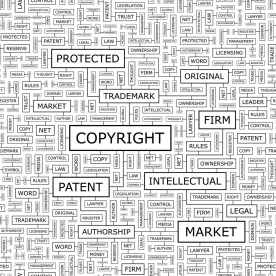One of the provisions included in the Consolidated Appropriations Act that President Trump signed into law on December 27, 2020 addresses the so-called “felony streaming” loophole in the Copyright Act and criminal code. Sponsored by Sen. Thom Tillis (R-NC), the “Protecting Lawful Streaming Act” adds a new section 2319C to title 18 of the U.S. Code to specifically, and narrowly, target certain commercial enterprises that are provided or offered to the public for the purpose of, or that have no commercially significant purpose or use other than, or are intentionally marketed to promote their use in, publicly performing, via digital transmissions, copyrighted works without lawful authorization. The legislative history confirms that this provision is not intended to subject “mainstream” internet service providers and streaming services or their customers to felony penalties.
Prohibited Acts. For nearly a decade, copyright owners have been lobbying for Congress to address the fact that infringing acts of reproduction or distribution can trigger felony penalties, but infringing public performances are only treated as misdemeanors under the criminal code. The addition of new section 2319C to the criminal code closes this “loophole” as it applies to persons that willfully, and for purposes of commercial advantage or private personal gain, offer or provide to the public a “digital transmission service” that (i) is primarily designed or provided for the purpose of publicly performing copyrighted works via digital transmission without lawful authority; (ii) has no commercially significant purpose or use other than to publicly perform copyrighted works via digital transmission without lawful authority; or (iii) is intentionally marketed to promote the service’s use in publicly performing copyright works via digital transmission without lawful authority.
Penalties. A person that is convicted of a violation of section 2319C faces up to 3 years imprisonment. The maximum penalty increases to 5 years where the offense was committed in connection with one or more works “being prepared for commercial public performance” – i.e., a work as to which, at the time of the offense, (i) the copyright owner has a reasonable expectation of exploiting via a commercial public performance and (ii) no copies of phonorecords have yet been authorized by the copyright owner. In the case of a motion picture, the enhanced penalty also applies where (i) the work has been made available for viewing in a movie theater but copies of the work have not yet been made available for sale to the general public for viewing outside a theater or (ii) the work has not been commercially publicly performed with the copyright owner’s authorization more than 24 hours prior to the unauthorized public performance (i.e., the offense occurs prior to or in the earliest “window” of authorized commercial availability). Finally, the maximum penalty increases to 10 years for subsequent offenses.
Limitations. The amendment contains a “rule of construction” that expressly provides that new section 2319C does not affect limitations on liability in the DMCA or principles of secondary liability nor does it prevent the enforcement of cable theft of service laws. Moreover, the legislative history includes a lengthy statement by Sen. Tillis explaining that section 2319C is not intended to target ordinary business disputes between legitimate companies or that can be adequately addressed through civil litigation. A broadband internet access provider, such as a cable operator, would not be subject to prosecution under this statute based merely on the attributes or features of its service or based on the misuse of its service by customers or others. In particular, failing to block or disable access to particular online locations, or failing to take sufficient measures to restrict the use of, or deny customer access to an infringing digital transmission service would not be sufficient to meet the statute’s criminal intent requirement or meet the prerequisites for liability for aiding or abetting.
Misdemeanor Liability. While not addressed in the amendment or legislative history, it appears that certain unauthorized public performances not covered by this provision (e.g., performances via analog transmission or by legitimate digital transmission services) continue to be subject to misdemeanor (but not felony) liability where committed for purposes of commercial advantage or private commercial gain.




 />i
/>i

